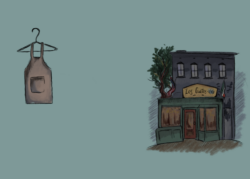From the gay George Washington University student kicked out of the university’s Reserve Officers’ Training Corps to Harvard’s president promising to reinstate its ROTC program if the military’s “Don’t Ask, Don’t Tell” policy is repealed, the military’s policy preventing openly-gay men and women from serving has come under fire on many college campuses. These controversies could come to an end if the policy is repealed.
But Georgetown’s ROTC program has steered clear of conflicts with the University’s non-discrimination policy, which prohibits discrimination on the basis of sexual orientation.
“We’ve not seen any evidence at Georgetown of discrimination related to these issues,” Julie Green- Bataille, associate vice president of communications, wrote in an email.
As an official branch of the military, the college-based officer commissioning program enforces all aspects of the Military Code of Justice, including “Don’t Ask, Don’t Tell.” Federal law prohibits universities receiving federal grants to ban ROTC from campus, but ROTC has chosen not to operate at several institutions since the Vietnam War.
In 2008, President Lee Bollinger of Columbia University said that the current “Don’t Ask, Don’t Tell” policy was inconsistent with his university’s fundamental values.
At Georgetown, by contrast, the policy has quietly been in place since it was implented in 1993.
“I’ve only been briefed on [“Don’t Ask, Don’t Tell”] once in my entire three-and-a-half years in ROTC. It’s never come up,” Cadet Public Affairs Officer Jonathan Klay (COL ’11) said. “When I signed my contract, there was this brief section stating that the policy as its set now, that one cannot be openly homosexual in the military.”
Klay said that, as a cadet, he could not give his personal opinion on “Don’t Ask, Don’t Tell.”
Although all ROTC courses are listed on MyAccess and count as University credit, only the first-and second-year courses are open to non-ROTC students. ROTC instructors are considered members of the faculty, but organized under a distinct Military Science Department, and are paid by the Army.
Although the Pentagon presented a report to Congress on Tuesday recommending a repeal of “Don’t Ask, Don’t Tell,” the Senate has yet to vote on the matter.






Generally speaking, ROTC can’t violate university non-discrimination policies due to DADT because non-discrimination policies bar only illegal discrimination. However, DADT is a federal law and therefore legal discrimination.